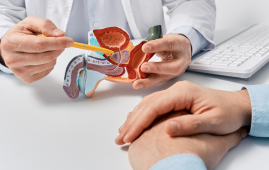

According to recent research from the University of East Anglia, heavy drinkers may put themselves at risk of muscle loss and fragility later in life.
According to a recent study published today, persons with the least amount of muscle were drinking 10 units or more every day—roughly a bottle of wine.
The research team adjusted for body size since larger people have more muscular mass. They also included factors such as protein consumption and physical activity.
According to the researchers, their findings, which were based primarily on persons in their 50s and 60s, provide yet another reason to limit alcohol use.
Prof Ailsa Welch, from UEA’s Norwich Medical School, said, “Losing muscle as we age leads to problems with weakness and frailty in later life.”
“Alcohol intake is a major modifiable risk factor for many diseases, so we wanted to find out more about the relationship between drinking and muscle health as we age.”
The researchers examined data from the UK Biobank, a large-scale database of anonymised lifestyle and health information from 500,000 people in the United Kingdom.
They examined data from nearly 200,000 participants aged 37 to 73 years.
Dr. Jane Skinner, also of UEA’s Norwich Medical School, said, “We studied how much alcohol people were drinking and compared it with how much muscle they had, according to their body size. ”
“We also took into account things like how much protein they consumed, their levels of physical activity and other factors that could make a difference to how much muscle they might have.”
“Most of the people were in their 50s and 60s. We found that those who drank a lot of alcohol had a lower amount of skeletal muscle compared to people who drank less, after we took into account their body sizes and other factors.”
“We saw that it really became a problem when people were drinking 10 or more units a day—which is the equivalent of about a bottle of wine or four or five pints.”
“Alcohol consumption and muscle mass were measured cross-sectionally—in people at the same time—so we can’t be sure of a causal link,” she added.
Prof Welch said, “This study shows that alcohol may have harmful effects on muscle mass at higher levels of consumption. ”
“We know that losing muscle as we age leads to problems with weakness and frailty, so this suggests another reason to avoid drinking high amounts of alcohol routinely in middle and early older age,” she added.
“Alcohol consumption and measures of sarcopenic muscle risk: cross-sectional and prospective associations within the UK Biobank Study” is published in the journal Calcified Tissue International.
more recommended stories
 Advanced Prostate Cancer and Serial ctDNA Analysis
Advanced Prostate Cancer and Serial ctDNA AnalysisKey Takeaways Serial liquid biopsies using.
 Tuberculosis Breakthrough with Experimental Antibiotics
Tuberculosis Breakthrough with Experimental AntibioticsKey Takeaways Experimental antibiotics disrupt a.
 National Healthy Longevity Trial Receives Federal Support
National Healthy Longevity Trial Receives Federal SupportKey Summary Up to $38 million.
 Vascular Health Linked to Early Alzheimer’s Brain Changes
Vascular Health Linked to Early Alzheimer’s Brain ChangesKey Takeaways Brain vascular health is.
 Red Blood Cells Improve Glucose Tolerance Under Hypoxia
Red Blood Cells Improve Glucose Tolerance Under HypoxiaKey Takeaways for Clinicians Chronic hypoxia.
 Nanoplastics in Brain Tissue and Neurological Risk
Nanoplastics in Brain Tissue and Neurological RiskKey Takeaways for HCPs Nanoplastics are.
 AI Predicts Chronic GVHD Risk After Stem Cell Transplant
AI Predicts Chronic GVHD Risk After Stem Cell TransplantKey Takeaways A new AI-driven tool,.
 Red Meat Consumption Linked to Higher Diabetes Odds
Red Meat Consumption Linked to Higher Diabetes OddsKey Takeaways Higher intake of total,.
 Pediatric Crohn’s Disease Microbial Signature Identified
Pediatric Crohn’s Disease Microbial Signature IdentifiedKey Points at a Glance NYU.
 Nanovaccine Design Boosts Immune Attack on HPV Tumors
Nanovaccine Design Boosts Immune Attack on HPV TumorsKey Highlights Reconfiguring peptide orientation significantly.

Leave a Comment